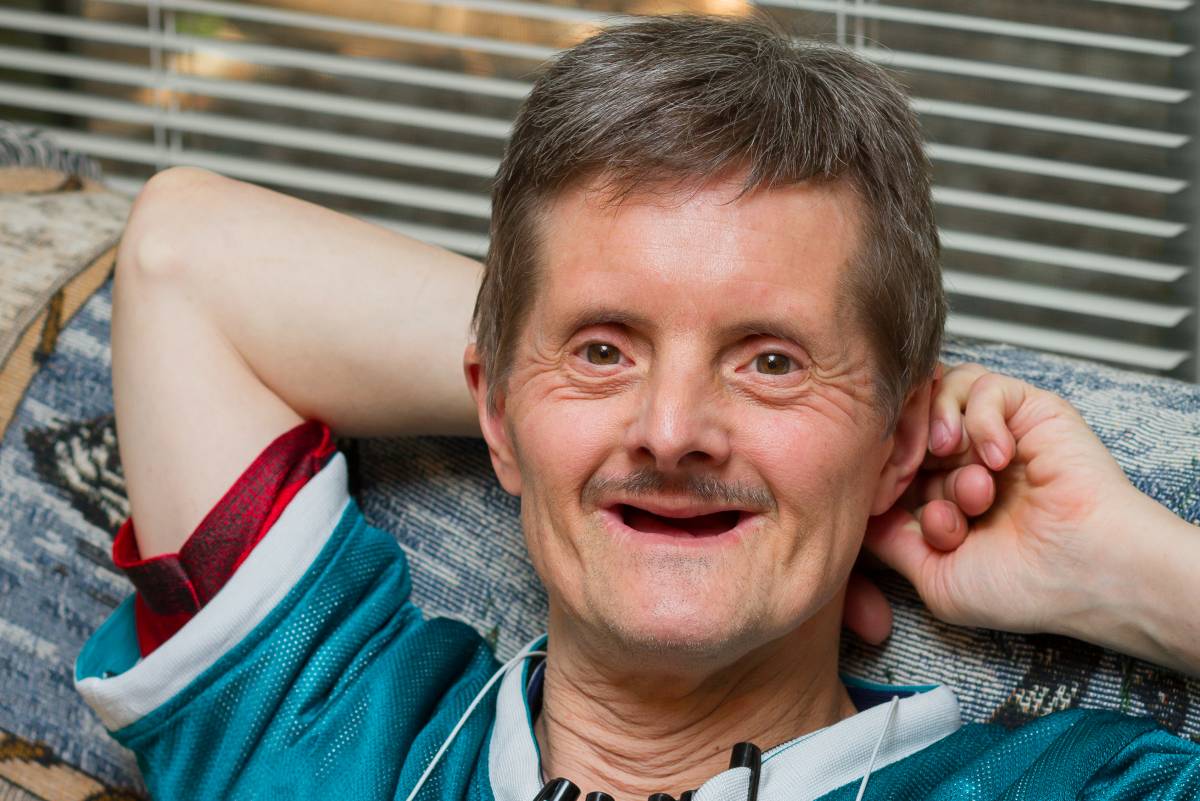Physiotherapy could be a 'shining example' by championing needs of people with learning disabilities
The physiotherapy profession should seize an opportunity to become a ‘shining example’ in the healthcare arena by advocating on behalf of people with learning disabilities, according to Alistair Beverley, a prominent physiotherapist in the field.
Mr Beverley, who has worked in the speciality for 11 years and has built up a large social media following posting as ‘The LD physio’, was responding to the latest evidence showing that Covid-19 is ravaging the lives of many people with learning disabilities.

Physiotherapy can be a shining example within healthcare, championing the needs of people with learning disabilities – including making 'reasonable adjustments' and providing healthcare which proactively seeks to break down barriers and prevent ill health [Alistair Beverley]
Mr Beverley spoke to PhysioUpdate as a research paper and a linked editorial appeared in the latest edition of The BMJ – both of which highlight how the pandemic is taking a disproportionate toll on people with learning disabilities in the UK.
Mr Beverley said: ‘This study highlights yet again the inequity within our healthcare systems that leaves people with learning disabilities so severely impacted by Covid.
‘This needs to change. Physiotherapy, as a profession, can be a shining example within healthcare, championing the needs of people with learning disabilities – including making “reasonable adjustments” and providing healthcare which proactively seeks to break down barriers and prevent ill health rather than reacting to it.
‘Only by taking these needs seriously can we then influence our medical colleagues and affect change at scale. Until we do that, I worry for the future health of people with a learning disability in this country and we will continue to see such shocking statistics as highlighted in this report.’
'Eight times more likely to die'
The BMJ research paper’s first author is Elizabeth J Williamson, associate professor of medical statistics at the London School of Hygiene and Tropical Medicine. She and her team examined electronic health records for more than 17 million people who were registered with a general practice in England, which were linked to hospital admission and mortality data.
Dr Williamson and her colleagues found that people with learning disabilities with Covid-19 were five times more likely to be admitted to a hospital and eight times more likely to die compared with the general population of England.
People with severe to profound learning disability were particularly at risk, as were those diagnosed with Down syndrome and cerebral palsy.
The UK-based research team argues that prompt access to Covid-19 testing and healthcare is warranted for this group, who should be prioritised for Covid-19 vaccination and other targeted preventive measures.
Uncovering a 'hidden calamity'
In a linked editorial in Ken Courtenay, chair of the Faculty of the Psychiatry of Intellectual Disability at the Royal College of Psychiatrists, and Vivien Cooper, chief executive at the Challenging Behaviour Foundation, suggest that a ‘hidden calamity’ is ocurring among people with learning disabilities.
They call for reasonable adjustments to be made to ensure that information about the pandemic and risk of infection are accessible, and that practical support is provided to protect people and manage risks.
‘Before the next pandemic, investment in research is essential, to help us understand the risks faced by people with learning disabilities and how best to protect them from the high risks of hospital admission and death from Covid-19.
‘People with learning disabilities have the same rights as everyone else, including the right to good health and to be safe from harm.’
To see The BMJ research paper, titled Risks of covid-19 hospital admission and death for people with learning disability: population based cohort study using the OpenSAFELY platform, visit: https://www.bmj.com/content/374/bmj.n1592
To see the linked editorial, titled Covid 19: People with learning disabilities are highly vulnerable, visit: https://www.bmj.com/content/374/bmj.n1701
Alistair Beverley is the physiotherapist for Special Olympics Great Britain and is also the organisation’s clinical director for health and wellbeing. He told PhysioUpdate: ‘I am online as "The LD physio" to try and improve knowledge of healthcare practitioners of the needs of people with learning disabilities. I recently launched my new information platform www.theldphysio.com to that end.’
For more information about the Challenging Behaviour Foundation, visit: https://www.challengingbehaviour.org.uk
Author: Ian A McMillan
Share it with














